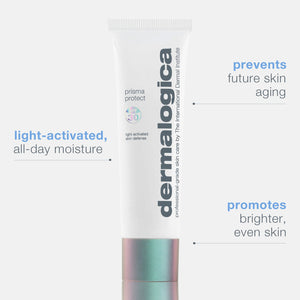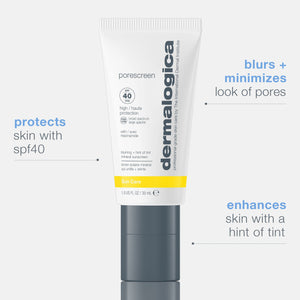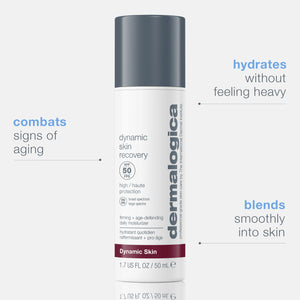8 min read
5 things you should know about spf
Discover the truth about sun damage and the importance of SPF in your skin care routine. Find out how to pick the perfect SPF for your skin type and lifestyle, ensuring you’re well protected under the sun.

Story Highlights:
Dive into the facts about sun damage and its impact on your skin health.
- Not all sunscreens are equal. To find the best formula for you, it’s important to pay attention to the labels for effective ingredients.
- Whether indoors or outdoors, your skin is exposed to UV radiation daily. Regular sunscreen use helps protect your skin from premature aging and reduces the risk of skin cancer.
Many of us still follow outdated advice that might harm our skin in the long run. Let's go over some of the things you should know.
1. Not all sunscreens protect against both UVA (aging) and UVB (burning) rays.
Applying any old SPF product won’t keep skin safe from both types of harmful UV rays. It’s important to look closely at labels and ingredients to ensure you are protected.
SPF stands for Sun Protection Factor, which indicates the level of protection a sunscreen provides against UVB rays. The SPF number tells you how long it takes for your skin to redden from these rays compared to if you weren’t wearing sunscreen.
For example, SPF 15 means you can stay in the sun 15 times longer without burning than if you weren’t wearing sunscreen. In addition to the amount of time, SPF is also dependent on the amount of solar energy your skin is exposed to which varies based on factors such as geographic location and time of day. Higher altitude, lower latitude, and the absence of clouds are all conditions that can lead to greater solar intensity, impacting the effectiveness of sunscreen.
It's also crucial to remember that SPF only measures protection against UVB rays. UVA rays, like those from tanning beds, penetrate deeply, accelerating skin aging and increasing the risk of skin cancer.
To safeguard against both UVB and UVA rays, opt for broad spectrum sunscreen which contains a combination of ingredients known to protect against both types of UV rays. Check for the “broad spectrum” label and look for ingredients like Zinc Oxide, Titanium Dioxide, and Avobenzone which provide effective broad spectrum coverage.
2. Chemical or physical sunscreen? It's a matter of preference.
Choosing the right sunscreen for your skin involves understanding the difference between chemical and physical sunscreens.
Chemical sunscreens absorb into the skin and are loved for their lightweight feel, ease of application, and enhanced water and sweat resistance. They feature active ingredients like Avobenzone and Helioplex.
- Consider trying Prisma Protect SPF 30, a lightweight, multitasking moisturizer that provides broad spectrum defense while preventing future signs of skin damage.
Physical sunscreens, or mineral sunscreens, sit on top of your skin. They may feel heavier and more noticeable but offer added coverage. Look for Zinc Oxide and Titanium Dioxide in the ingredients list to identify them.
- Porescreen SPF 40 is a multitasking physical sunscreen with SPF 40 protection. It supports healthy-looking pores, reduces their appearance with a blurring, primer-like effect, and enhances skin tone with a hint of tint.
3. A base tan does not protect you from the sun.
Contrary to popular belief, there is no such thing as a safe tan. A suntan signifies your skin’s response to UV exposure, as cells produce more melanin (pigment) to defend against them. Acquiring a base tan won’t offer any health benefits or protect you from UV damage.
4. Sunscreen isn't just for the summer.
Sun damage isn’t limited to the summer months or beach days. Photo damage or UV exposure, which leads to aging, can occur even on cloudy days, through glass, and from fluorescent indoor lighting. Incorporating sunscreen into your daily skin care routine is essential for protecting your skin year-round and can prevent roughly 90% of preventable photoaging.
And, while daily sun care is an obvious must, it also shouldn’t come at the expense of your skin care benefits! Because all Dermalogica sunscreens go beyond just defense to deliver these benefits, finding the right SPF formula for your skin and routine can level up your entire skin care regimen. Choose multi-tasking products like Dynamic Skin Recovery SPF 50, a 3-in1 moisturizer that not only provides broad-spectrum protection but also delivers anti-aging benefits to keep your skin looking youthful and hydrated.
5. You're probably not using enough sunscreen or reapplying as often as you should be
Determining how much SPF you need depends on various factors, including your skin type and the intensity of sun exposure. Dermatologists generally recommend using a broad-spectrum sunscreen with at least SPF 30 for daily use. When applying sunscreen to your face, a quarter-sized amount is typically sufficient to ensure adequate coverage. For broader areas like the body, the American Academy of Dermatology recommends a “liberal use” of SPF (picture a shot glass full).
Sunscreen typically lasts for about two hours, but its effectiveness can diminish with exposure to water, sweat, and friction from clothing or towels. To ensure continuous protection, it’s important to reapply sunscreen every two hours, or immediately after swimming, sweating, or toweling off. Using a water-resistant sunscreen can provide additional protection during activities involving water or heavy perspiration. Remember, creams and lotions tend to offer better protection than sprays.
Understanding SPF and sunscreen is vital for maintaining healthy skin and preventing sun damage. By choosing the right SPF level, applying sunscreen generously and regularly, and incorporating sun protection into your daily routine, you can enjoy the outdoors safely while keeping your skin looking its best.
Shop our extensive sun care collection here or chat live with our Professional Skin Therapists if you still have questions about which SPF is right for you.







